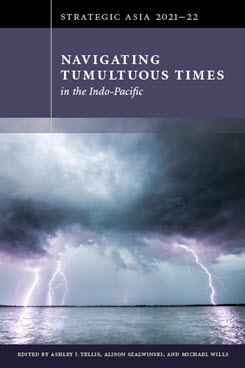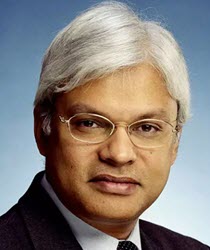A Tempestuous Hegemon in a Tumultuous Era
This chapter examines the genesis of the disorder in the Indo-Pacific that became manifest during the Trump years and how the U.S. has managed U.S.-China competition, the challenges of globalization, and the Covid-19 pandemic.
EXECUTIVE SUMMARY
MAIN ARGUMENT
The tumultuousness of Trump’s presidency was rooted in developments that long predated him. China’s integration into the international trading system provided significant benefits for the U.S., but also imposed considerable burdens on key segments of its population. These hardships were compounded by sharply rising inequality domestically, failed U.S. military campaigns abroad, and the global financial crisis, which together stimulated a destabilizing nationalism and increased isolationism at just the time when China had become a potent strategic competitor. The Covid-19 pandemic only magnified the turmoil. Although Trump’s response to these crises failed to dismantle the liberal international order, his nationalistic trade policies, transactional approach to alliances, and ragged response to the pandemic damaged trust in the U.S. globally. That these behaviors did not destroy the U.S.-led order demonstrates its resilience while also doing credit to Trump administration officials who protected it despite the president’s disinterest.
POLICY IMPLICATIONS
- The U.S. must couple economic rebuilding at home with a sensible foreign policy to protect democracy domestically and preserve U.S. leadership of the liberal international order.
- The U.S. should maintain healthy economic ties with China to increase U.S. welfare gains, which are also necessary to effectively compete with China. In its competition with China, the U.S. should focus on preserving its military advantages, technological dominance, and ideational attractiveness globally.
- The U.S. should recommit to expanding international trade both to limit China’s growing influence and to increase U.S. competitiveness and innovation, thereby strengthening its own economic power.
Ashley J. Tellis is the Tata Chair for Strategic Affairs and a Senior Fellow at the Carnegie Endowment for International Peace. He is also Research Director of the Strategic Asia Program at the National Bureau of Asian Research.




 Navigating Tumultuous Times in the Indo-Pacific
Navigating Tumultuous Times in the Indo-Pacific
